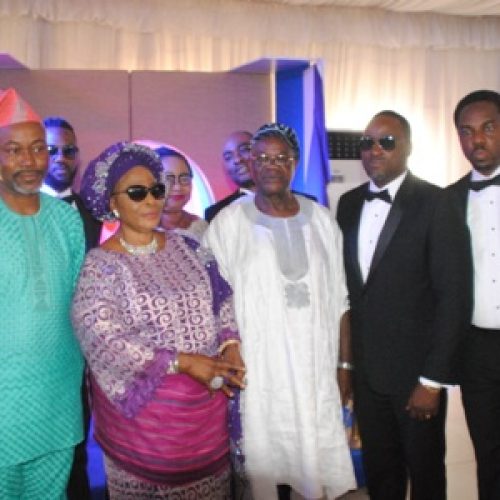Nigeria needs sustainable plan to fight COVID-19 – Psychiatrist
A Consultant Neuro-Psychiatrist, Dr. Maymunah Kadiri has call on the federal government to be proactive and put implementable polices in order to check outbreak of pandemics. She says sustainable plan is the only solution to the Nigerian fragile health care system. Speaking on a radio programme, Kadiri who is the Medical Director of Pinnacle Medical Services talked on a number of issues pertaining to the Nigerian health sector. She also gave advice on how to avoid health challenges working from home at this period of lock down. Juliet Umeh captured it. Excerpts:
As a psychological, behavioural, and mental health doctor, how would you say COVID-19 has affected the health of people?
One thing we all have to know is that everybody right now is collectively dealing with trauma, in one way or the other. The only difference is how each and every one of us is coping with the trauma. We all just have to understand that Covid-19 is a common denominator but the thing is that we are not in control on how things are going. Even the world health organization, WHO, give us some conflicting information and that’s because the it is a novel virus and it will keep changing.
Coronavirus is very egocentric, it is such a virus that is full of itself, it’s doing a lot of damages, it’s a leveler and it is exposing a lot of health challenges. So, what we are dealing with now is a collective trauma it’s affecting us from panic, to confusion, to increased anxiety, depression, even people experiences suicide thoughts. We are hoping that this era will end safely and we are not going to go into unforeseen era of another pandemic which is the increase in the rate of mental illness. We need to be more proactive, everybody has to do what they have to do to be safe and if the government can put up implementable policies to help everyone, it will really help.
In the midst of Coronavirus pandemic, we had medical doctors embark on strike for obvious reasons. Are there lessons we can learn from all these or just fold our hands and wait for the next pandemic to hit us?
This is a public health issue and being a public health physician, it’s quite sad that we are where we are in 2020 especially when it comes to health sector. For example, from the policy making to budget to health is appalling and this has been back to back every year. We are so used to that fire brigade approach that when something happens we rush in and then rush out. We must be able to put up a sustainable plan. That is the only way we can get out of these.
Coronavirus has come and has leveled everybody, the big, small, and the mighty. It’s not a respecter of anyone. And now it has exposed our very fragile health care system.
Why am I saying it’s a fragile healthcare system? From the infrastructure to the human resources to the execution is very poor. Why Nigerian doctors are migrating to the UK is because there are incentives motivating them over there. Here, we neglect the people that make things happen. When Resident Doctors wanted to go on strike, you see a lot of emotional issues. People ask how can they go on strike, forgetting that these doctors belong to a family system. The ladies there are daughters, sisters, wives, mothers and the same thing with the men there. So we don’t just take things in isolation. I was once there as a resident doctor, I ran the affairs of the National Association of Resident Doctors and I know that some of the things they have been clamouring for are the things that have been there for years.
When it comes to health, it’s not an individual thing it is a collaborative effort where the private-public should partner and our primary healthcare sector being revived. Some of the things we are seeing in secondary and tertiary institution are meant for the primary healthcare system. These doctors are already over burdened; imagine when a doctor is seeing 40 patients per day that is crazy. The thing we need to know is that a healthy nation is a wealthy nation. We need to go back to the drawing board. That one percent fund that is budgeted to primary health care should be highly implemented, executed and of course doctors must be motivated. We need to put our act together to revive our health care sector. We need to prevent fire brigade approach when it comes to our health.
We have struggled in terms of amenities, like water supply especially, in this pandemic. Many people in the city of Lagos don’t have access to water supply. What is your take?
We need to have a model whereby we will not need to struggle when there’s a pandemic. Let it be that every organization, hospitals, work places have tap water system running properly. At this point in time, we are having community transmission; we are no longer having influx of people from foreign countries. The issue of sanitation is very key because immunity is also a major preventive measure of dealing with Covid-19. Water availability is something that every state, local government should look into. You can’t tell people to use hand sanitizer every time. In fact water and soup is the best preventive measure. The thing is that if this is not a sustainable, when we have another outbreak, we will go back to square zero and we spend more money, looking for donors. No, let there be a policy statement. Another thing about sanitation is that the face mask and gloves are causing drainage blockage. People need to be educated on how to dispose these things appropriately.
How is the disruption adopted by companies, especially remote wok, affecting people in your perception?
The thing is that before now, people were longing to take some days off and work from home, but now the really has come. People are realizing that remote remotely is bad because somehow, the brain tends to tells you to work harder. Now, doctors in the eye clinic, whether opticians, optometry are beginning to see more people complain of sight because they are always looking at the screen and the lights at the screen are not healthy for us.
Now that we are working remotely, let us work in a way that it will not have adverse effects on our health. Work in such a way that you have a structure, routine, have a time that you zoom in and out. Don’t zoom in everything. Also, employers should also know that it’s not every time they put their employees on zoom meeting from morning till night because they do not trust them to do what they need to do. Give them timeline to submit their work.Some people have even lost track of the week now because every day now is work day Whether you are an employee, employer, business owner, entrepreneur, know that working from home can be scandalous if you do not prioritize your health. You are your own biggest asset and if you burn out, you are useless to your selfless to people around you.
Ensure you take regular break, get up, don’t always zoom in, and stay away from the screen as often as possible. Ensure that you zoom out from time to time to rest, do exercises to boost your energy. I have seen somebody that said from nine to six, she is sitting down and now her back is aching she has to go and see an orthopedic surgeon. Please, let’s prioritize our health in all that we are doing. I said something initially, we are collectively dealing with trauma, so don’t impact so much on yourself by trying to feel pressured or comparing yourself to another person.
About author
You might also like
Minister launches Foundation against epilepsy
SOOF begins campaign against stigmatisation and discrimination Nigeria recently took a major step towards bringing epilepsy out of the shadows and dispel the myths and stigmatisation surrounding it, as the
UK, Nigeria sign MOU to strengthen health security
[L-R] Dr. Ene Obong, Director of Climate Change, MoH (representing the Honourable Minister of State for Health, Nigeria); CEO Nigeria Centre for Disease Control, Dr. Chikwe Ihekweazu; Chief Executive Officer,
Obstetric Fistula: Why expectant mothers must register with skilled birth attendant
With about 500,000 Nigerian women living with obstetric fistula, women need to avail themselves with regular medical check up to prevent health complications, including fistula, which could lead to death





0 Comments
No Comments Yet!
You can be first to comment this post!